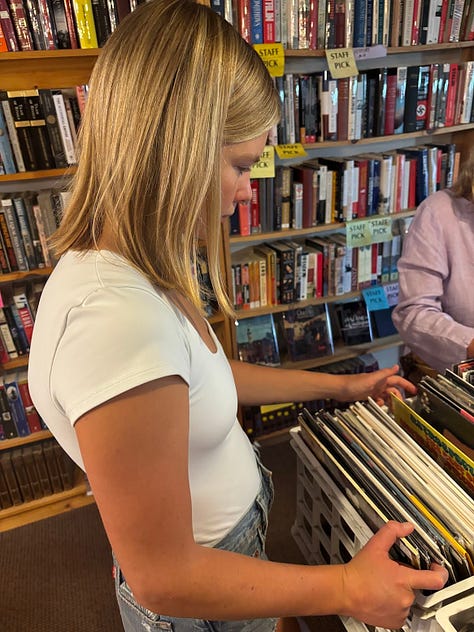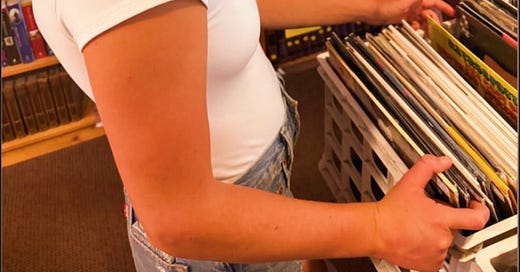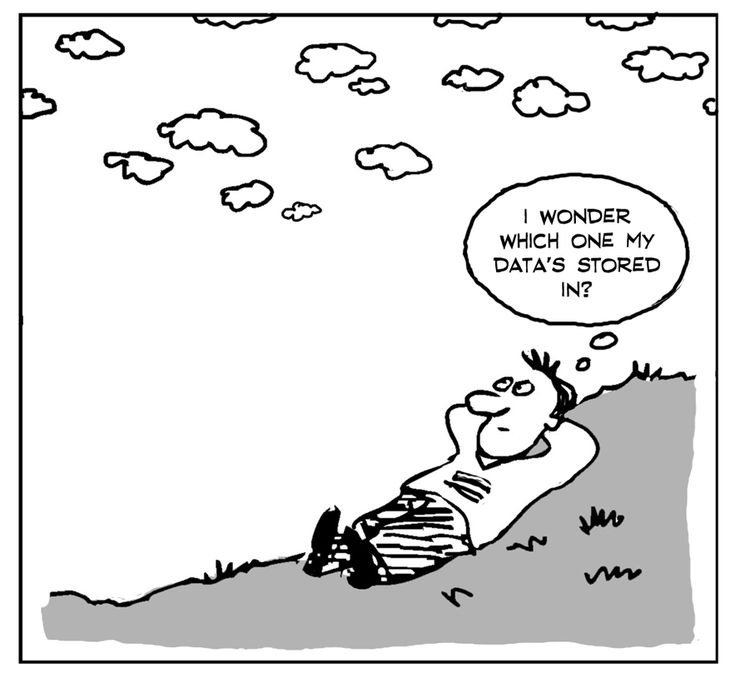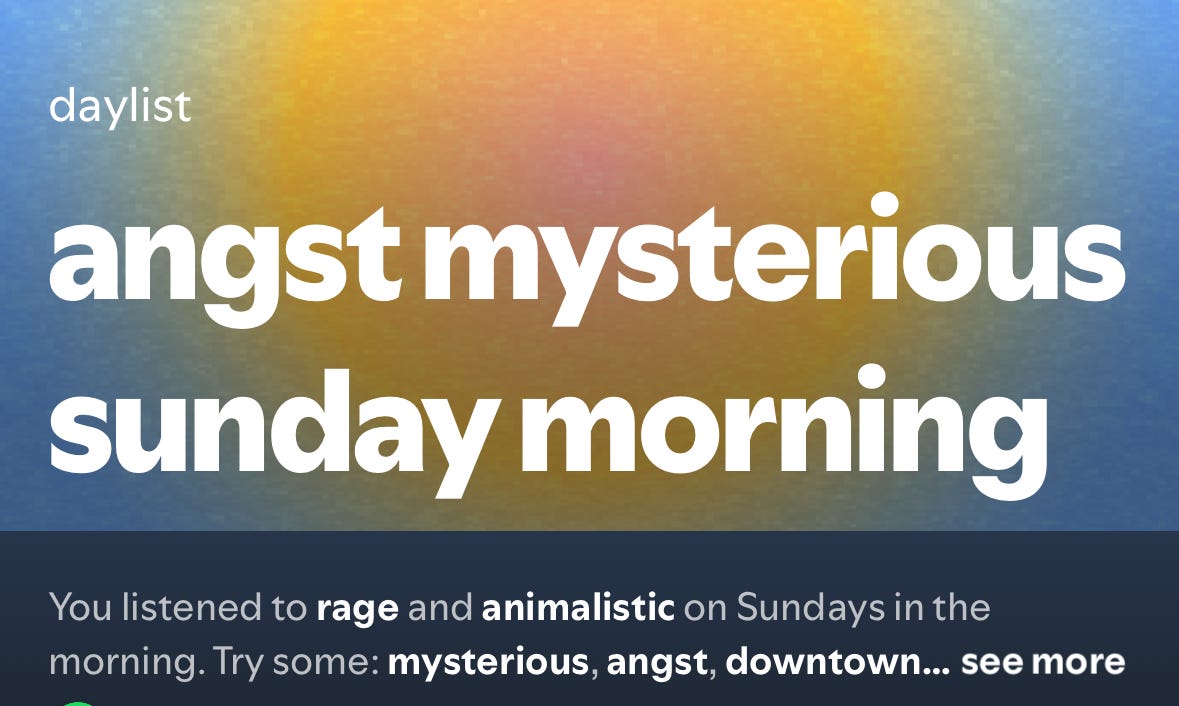We Are All Peasants (And Should Start A Record Collection)
On ownership, digital feudalism, and record collecting in the streaming age
Last year, on my twentieth birthday, I had a rather dramatic, classic birthday-existential crisis, as I often do when I am squarely confronted with the relentless passage of time. I was between apartments, surrounded by boxes, getting ready for the seventh move in the past three years. As I sat on the floor of a room that wasn't even mine, I was confronted with the horrifying realization that after two decades of my cruel, earthly existence, all I had to show for it was a suitcase full of cheap polyester clothes—synthetic garbage that would outlive me in a landfill somewhere.
I had nothing tangible to prove I'd lived at all. The books from my childhood home had been donated years ago. The little treasures I carefully collected as a kid — seashells from a rare beach vacation, the coin collections that my brother and I used to get into full-on brawls trading and swapping, thank you notes from childhood friends whose faces I can no longer remember—every sweet, nostalgic memento I had, had vanished somewhere between moves. Twenty years of collecting memories and documenting my life, now scattered throughout Salvation Armies across America.
Of course, my identity extends beyond physical objects. I am an amalgamation of all the people, places, and things I've loved. I carry these experiences in my body; proof lives in my weathered skin, my scars, and the way I smile and carry myself. But beyond my fleeting physical body, what evidence remains beyond pictures archived on a curated Instagram feed, Spotify playlists, and essays saved in a Google Drive?
"And all you touch and all you see
Is all your life will ever be"
- Breathe (In the Air), Pink Floyd
I'm going to live a long, healthy life, but if I were to hypothetically drop dead right now, my whole existence would evaporate into the Cloud. My entire life tucked away in some massive data center in a crumbling midwestern town. Until one day, an Oracle Cloud Service intern gets assigned to optimize storage space and deletes my inactive accounts and erases everything I've ever been.
So, on my twentieth birthday, I started my record collection. My brother gifted me Punisher by Phoebe Bridgers, and through 11 songs and 40 minutes pressed into vinyl, I finally had proof of my existence.
Over the past year, I've been slowly building my collection. Since January, I made a rule: I'd buy a physical copy of the album I listened to most every month. So someday, when I'm thirty, and I've long forgotten who I used to be, I'll play Punisher. And when the needle reaches the final song, "I Know the End," I'll remember the big fuss I made on my twentieth birthday.
I love my record collection. It's beautiful decor in my otherwise bare bedroom. And I especially enjoy the intellectual superiority I feel as I go through the effort of dusting my vinyl and weighting the needle just right. You just wouldn't get it. I appreciate music on a deeper, more profound level than anyone else. I am not a mindless consumer, I am immersed. I am reading lyrics from the songbook and pondering their deep philosophical meaning, while everyone else is listening to algorithmically curated "sad girl starter pack" slop.



While I love self-indulgence and relishing in my intellectual superiority, I'd like to make a case for why everyone should start a record collection.
What Do We Own
Right now, I "have" 2,905 songs on Spotify, organized into 172 playlists, collected and curated over the past five years. That means when I go offline, I can continue to listen to these songs as if they were downloaded on my phone.
For $11.99 a month, I enjoy the illusion of ownership. But I don't own anything. What I'm paying for, along with 500 million1other music streaming subscribers, is a license.
I'm not buying these songs—I'm buying a membership wrapped up in a pretty user interface that feeds my data back to me at the end of the year. Paying for streaming is like paying $150 a year for a gym membership. I can use the equipment all I want, but the moment I stop paying that monthly fee, the songs are as mine as much as the treadmill at the gym is mine.
Billions of dollars are poured into ensuring that these systems operate seamlessly, and most of the time, they do. I can listen to Radiohead on Spotify any hour of the day, and nobody will stop me: the record won't skip, the needle won't wear out. At the end of every year, Spotify will even tell me what a unique, special little angel I am for listening to so much Radiohead! It's a near-perfect system until it isn't.
In 20222, Joni Mitchell and Neil Young pulled their music from Spotify to protest the platform's support of Joe Rogan and his vaccine misinformation. While I admired my Canadian folk heroes standing up for what's right, overnight I lost access to their entire catalogs. And there I was a seventeen year old girl deprived of the magic of Both Sides Now.
And the only way I could get it back was to either subscribe to another streaming service or buy a physical copy.
While this was a relatively insular event, they eventually returned their music to Spotify (and Joe Rogan still does whatever Joe Rogan does), it exposed a fundamental flaw in a system we treat as infallible. Everything is streaming, everything is licensed, and we own nothing. We are peasants basking in the illusion of excess, at the mercy of faceless tech giants to maintain this well-engineered facade.
The Cloud
Here's an incredibly shallow overview of the cloud, which is important context for understanding the importance of physical media in the digital age.
The cloud is a beautiful feat of engineering, the ability to store massive amounts of data and power the world with it. A complex, interconnected system, with many of its own advantages and disadvantages.
When I save a song on Spotify, on the backend, it is data—information—that is encoded into 1s and 0s, the binary language of computers. This information, in this case a song, is stored not on my phone or laptop, but on servers in giant warehouses called data centers.
Most companies don't own these data centers. They rent them from cloud service providers like Amazon Web Services (AWS), Google Cloud, Microsoft Azure— our de-facto digital overlords. Spotify runs on Google Cloud3. Apple Music uses Apple's own data centers. Whether to build or rent is a complicated business decision that companies spend millions on consultants4 to figure out.
There's incredible engineering that powers these systems and ensures their reliability. Spotify pays Google to store and deliver your music. Google runs multiple copies across different regions, if one data center goes down, your playlists will survive. Engineers are constantly devising systems to backup and shift data to avoid outages. However, outages still happen: large swaths of the internet have crashed when AWS had a bad day.5
Despite all the engineering, complex legal agreements, and bureaucratic red tape that exists to maintain these systems, you don't own anything.
Your playlists, your downloaded songs, even your personal photos on Google Drive, exist on borrowed space. You're either directly (paying for storage) or indirectly renting access to your own stuff.
Compare that to a record sitting on your shelf. If you wake up one day and decide that Neil Young is an insufferable old man, you can dramatically burn Harvest on live TV, sell it, give it away, or crush it up and snort it. Doesn't matter. It belongs to you and you can do whatever you want with it.
Towards Serfdom
Like most people, I pay for Spotify every month on my credit card. Luckily, I'm a fiscally responsible young adult who pays my bills on time, so the impact on my personal financial health is minimal.
But most people are not so fortunate. The average American, as of February 2025, has $6,4556 on credit card debt. When something is bought on a credit card, it's not really yours yet; it's bought with borrowed money, debt.
Now, a Spotify subscription is a seemingly insignificant monthly charge, but compounded with other subscription-based streaming services, these fees can have a substantial financial impact over a long-term time horizon. The average American household spends about $61 a month on streaming services. That's $732 a year. Over $7000 in a decade.
Spending money is fine if we are getting value from what we purchase. The issue with the subscription-based streaming model is that we are spending exorbitant amounts of money, yet we own nothing.
We are borrowing money, to borrow licenses, to pay a company that pays another company to rent space in a warehouse full of servers to store music, to listen to music. And if anything along that chain of middlemen goes awry (think about how many of your favorite shows have suddenly vanished from Netflix), we are left paying for nothing, nothing tangible.
This is the core idea behind digital feudalism7. In the digital age, we've all become serfs. Our new feudal lords: big tech giants. As serfs, we pay monthly tributes for the right to use their services while also surrendering our precious data—information about ourselves, our habits, how much we're willing to bow at their feet. Which is then sold to advertisers, who use it to craft targeted ads designed to make us spend even more.
As pacified little peasants, we give everything our money and our data, and we get nothing, not even a crumb of bread. Just our data handed to us every four hours in a cutesy Spotify daylist.
A Record of Existence
As much as I'm currently trying to wean myself off being dependent on Spotify (last year I hit eight hours a day of listening), fundamentally I'm a screenager. I don't think I could go on a plane without Spotify or I'd start throwing a tantrum like a toddler. I need music to pacify me8.
As much I love the idea of walking around campus with a walkman and carrying a flip phone, I do not possess the effortless swagger of the luddite teens.
However, I can keep collecting records. The etymology9 of the word itself reveals the importance of keeping them. The word comes from the Latin recordari, meaning "to remember" and "to bring back to the heart" (cor meaning heart). A record is physical memory of our hearts beyond the digital void.
Even though we live in a world where everything is computer, I am not computer! I know I am not computer because every time I listen to a song, an album, I'm transported back to when that music was my lifeblood. I can see, touch, and smell what it was like to be alive in a version of myself I've long abandoned. Every era of my life can be defined by what I was listening to, and I refuse to let Spotify and Google Cloud be my sole historians.
If I keep up with my record collecting, by the time I'm twenty-five, I'll own at least sixty albums—each a fragment, a month of my early twenties. This month I'm buying Yankee Hotel Foxtrot, and someday when I'm seventy years old, I hope I'll still have it. I want to explain Jeff Tweedy and the genius of Wilco to my grandchildren, dance to "Heavy Metal Drummer" even with worn skin and aching bones, and sincerely miss the innocence I once knew at twenty.
So buy records. Or CDs. Own something beyond cheap polyester tank tops from Revolve hauls and useless Amazon Prime knick-knacks that make me want to peel my eyelids off.
I will. Because someday after I'm long gone, I hope someone listens to my records and feels them the way I do. And that will be enough proof I existed.

.
my job this summer
I do not come up with this. Learn more about digital feudalism.
I think it is important to note that my needle has been broken for the past two months. I very much am dependent on Spotify.
https://www.etymonline.com/word/record I am a big fan of etymology







I love this. Feeling inspired to purchase a record player for my room next year.
Wonderful post and a great way of looking at collecting. When you get to be middle aged you’ll have the simultaneous pleasure of looking at albums or CDs that trigger a specific memory and then replaying them because you realize you haven’t listened to them in twenty years, a not unpleasant experience but unavoidable when you live and love music that long. So you have that going for you, which is nice.
Another pleasure for us middle aged music fans is seeing young people take up and enjoy the hobby. I was in a record store (actually 3 stores) over the weekend and saw a college girl at the checkout clutching a vintage Lovin’ Spoonful album like a treasure. I hope she loves it.